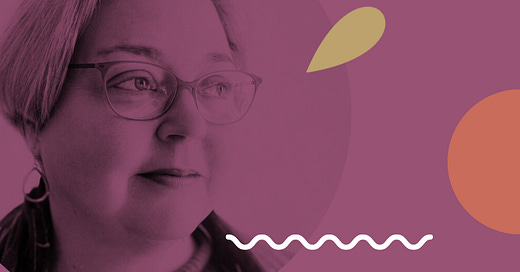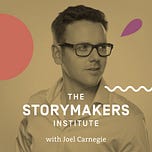Welcome to Story Insider 📖 A new series of found long reads, unheard interviews, and curated analysis from The Storymakers Institute.
To launch this series of dispatches - longtime American radio and podcast editor,
joins me, who’s been hanging out under dim lighting in the Harvard Library for quite some time.Julia Barton is one founder of Pushkin Industries who's worked with Malcolm Gladwell, Michael Lewis, Tim Harford, Jill Lepore and others, to develop their narrative shows - and I had the absolute joy of working with Julia on one of my ABC audio documentaries, a few years ago.
As a Nieman Fellow at Harvard University, Julia has been investigating the history of radio and podcasting from the very beginning to today. I sit down with her to tackle this monster piece of research: where do we even begin? With the sinking of the Titanic.
Joel: Julia, welcome to The Storymakers Institute. Let’s wander back in time to 1912. How was the Titanic involved in the birth of radio - as we know it today?
Julia: The Titanic was sending out distress calls in Morse code to all ships in the area. People started to hear these distress calls, even from the shore in America, so people were extremely upset that so many passengers died. And ships did not, for whatever reason, respond quickly enough. So, the US Congress, immediately after that incident passed a new radio act. It set up the rules of the road. And also, it started to regulate shore communications. Nobody was using radio yet for voices or music. That was still a kind of a weird possibility.
Joel: There's a great irony that the origins of radio were about saving people's lives. And now it's about documenting true crime.
Julia: I know, it's crazy. Nobody intended radio waves to be used for voices. And later, the use of mechanically reproduced speech or music was discouraged, except in emergencies. Everything had to be “live”.
Joel: And there's a myth to this day, that even if what you hear is pre-recorded, it still needs to have a “live” quality to it, even when you know it's not live.
Julia: There is that real perception that when we hear someone talking to us, even in a podcast, that that 20 minute podcast took 20 minutes to make. It's an illusion that, you know, we've sort of lazily allowed to just continue. And it's hard to break because the liveness is such a magical quality in the history of this medium.
Joel: So how would you describe things right now in radio, and podcasting.
Julia: It's moving so rapidly, and I do think and you can see this in the show cancellations and layoffs in public radio: podcasts and broadcasts sit uncomfortably together inside broadcast houses. Podcasting is more like magazine and book publishing. And broadcasting is broadcasting. They're different delivery methods.
Listen to this episode with a 7-day free trial
Subscribe to The Storymakers Institute with Joel Carnegie to listen to this post and get 7 days of free access to the full post archives.













